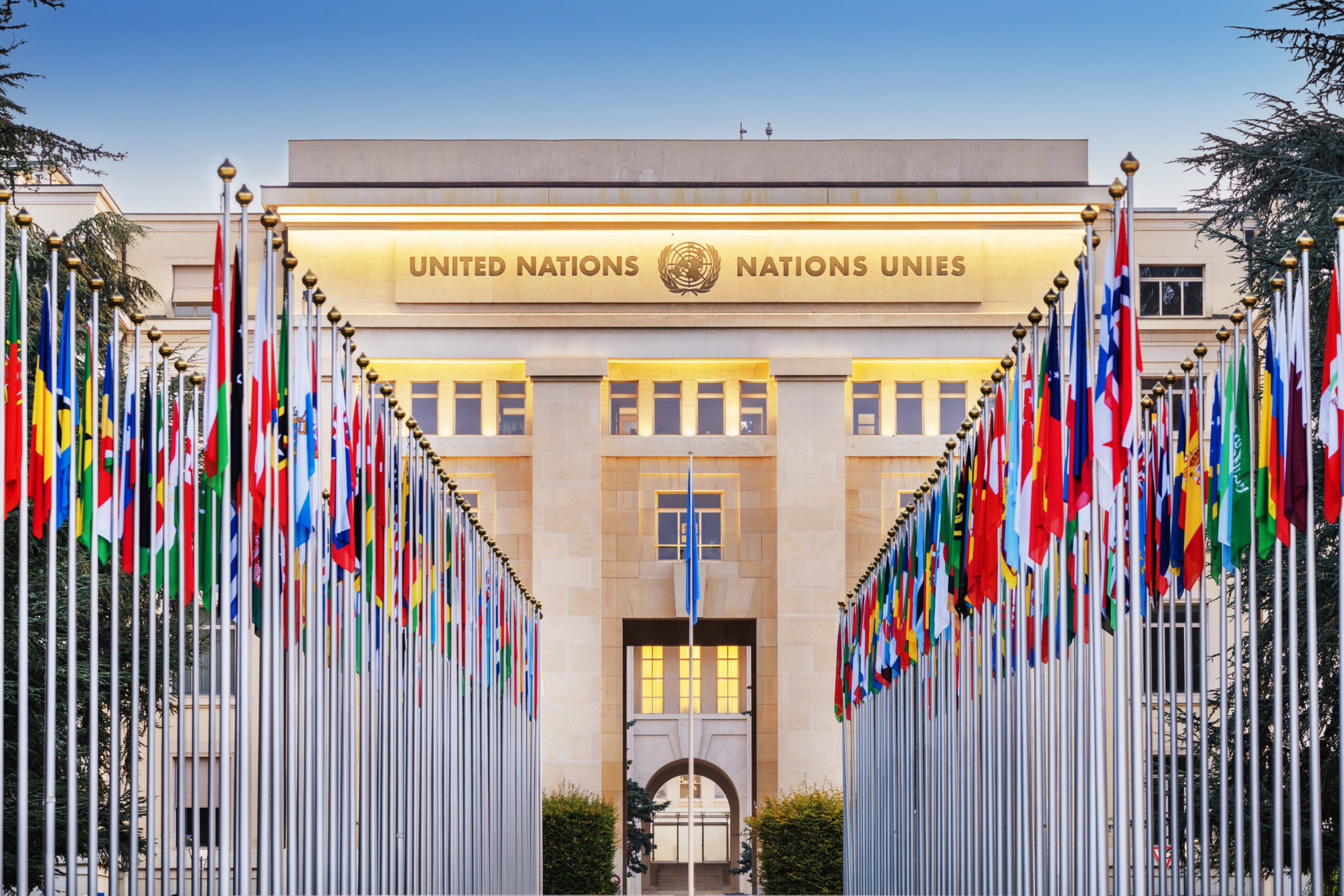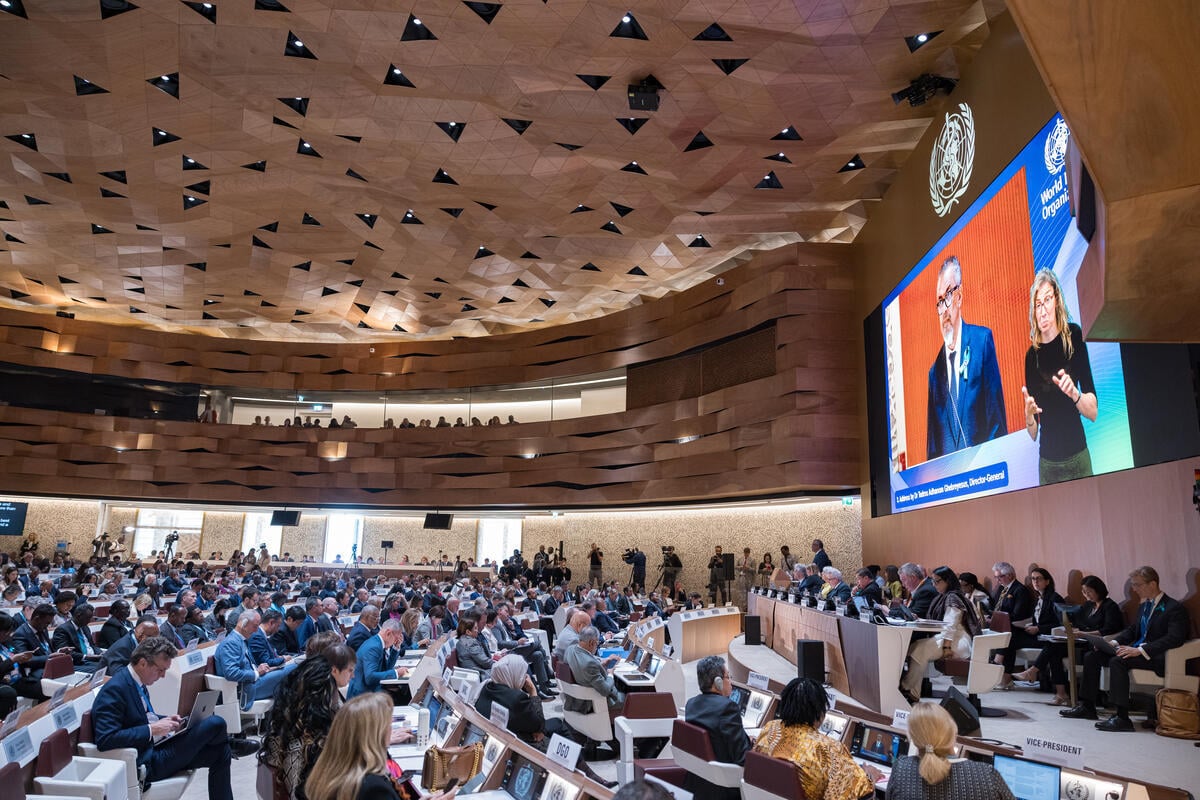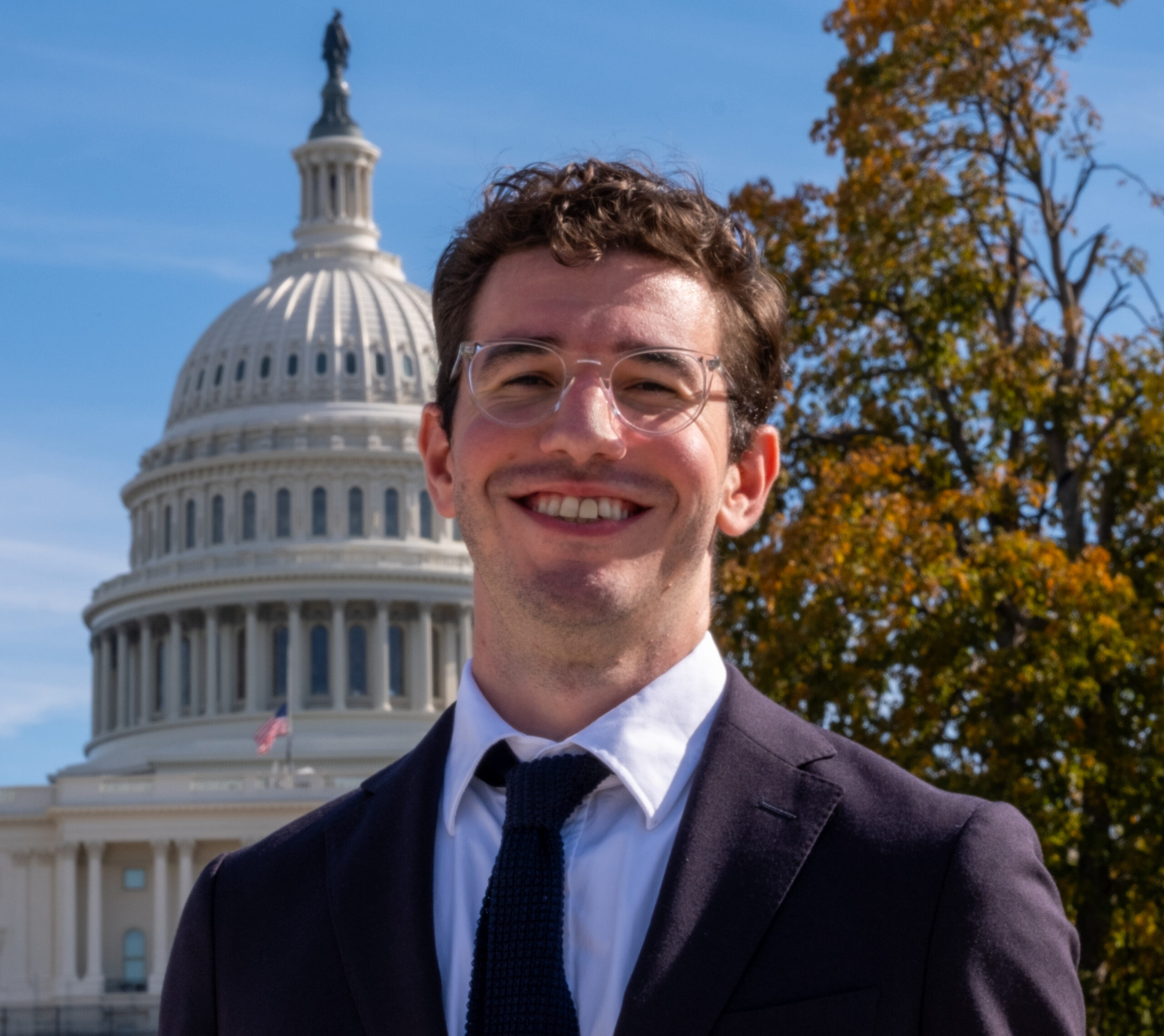The 78th World Health Assembly
The World Health Assembly just wrapped and once again, it was a big year for immunization. Here’s what you need to know.

The 78th World Health Assembly (WHA) just wrapped up in Geneva, where delegates from nearly 200 member countries gathered to discuss, negotiate, and set new policies around today’s most pressing health issues. The absence of a U.S. delegation due to the Administration’s decision to withdraw from the World Health Organization (WHO) cast a shadow over proceedings.
But extensive conversations on topics ranging from public health financing, to the intersection of climate and health, to efforts to reduce lead poisoning globally still took place. And, once again, it was a big year for immunization. Here’s what you need to know.
The pandemic accord is officially adopted
The most striking achievement of the 2025 Assembly was the adoption of the Pandemic Accord by member states after years of difficult negotiations.
First proposed in 2021 in the wake of Covid-19’s devastating cost in lives, health, and prosperity, the global pandemic agreement is meant to strengthen collaboration between countries to reduce the risk and impact of a future pandemic. The agreement calls for increased surveillance of infectious diseases in animals and humans, investment in health systems to make them more resilient to future pandemic shocks, and the strengthening of routine immunization programs to reduce disease transmission and prevent the reemergence of previously controlled viruses.

Pierre Albouy / WHO
While the adoption of the pandemic accord represents a major milestone and massive step forward for global health security, key questions around enforceability and effectiveness still hang over the agreement.
For one, the most contentious part of the proposed agreement—whether and how wealthy countries will share tests, vaccines, and treatments in the event of another pandemic—is still being negotiated as an addendum to the agreement. As many as one million people in lower-income countries may have died as a result of delayed access to Covid-19 vaccines. Timely sharing of health commodities in the future would represent perhaps the most concrete response to the lessons of the last pandemic, but concerns about intellectual property could hold up agreement.
Secondly, the absence of the U.S. from WHA further calls into question the possible effectiveness of the Accord. Without participation of WHO’s biggest funder, and a pharmaceutical and biotech powerhouse home to many of the world’s leading health innovators, the agreement may not be able to achieve its goals of strengthening health systems or sharing of healthcare products in an emergency.
New milestones in the fight against infectious diseases
WHA also saw a considerable spotlight on infectious diseases that have been surging globally, like measles, as well as longstanding threats like polio.
The Measles and Rubella Partnership convened a high-level side event at the Palais des Nations on the renewed importance of measles vaccination given falling or stagnant immunization rates and rising cases around the world. Attendees, including Gavi CEO Dr. Sania Nishtar, Ministers of Health from Oman and Somalia, and regional WHO leadership from Africa and the Americas, also discussed WHO’s recently revised recommendations on the rubella vaccine. Previous recommendations had countries achieve 80% measles vaccine coverage before rolling out combination measles-rubella vaccines. But these recommendations have been newly revised to allow for speedier use of combination vaccines in light of the increasing burden of rubella, which can cause hearing and vision loss, heart defects, and even death.
“Immunization is not merely a health intervention. It is a peace event, it is a development accelerator and it is a testament to the resiliency of our communities.”
Dr. Ali Haji Adam Abubakar, Minister of Health and Human Services for the Federal Republic of Somalia
At another high-profile side event entitled “Outsmarting Outbreaks: Innovation, Integration, and Investment,” leaders from WHO, Gavi, the Gates Foundation, and a range of civil society partners discussed the way forward to strengthen immunization systems, improve disease surveillance capabilities, and better integrate primary healthcare services. A particular milestone was the announcement that a dangerous outbreak of variant poliovirus in Madagascar has officially been closed. The outbreak, which first began in 2020, caused 45 cases of paralysis and represented a significant threat to unvaccinated children. But thanks to a coordinated effort by health authorities and international partners, millions of kids were vaccinated in four mass vaccination campaigns over the past two years, stopping the outbreak and raising polio vaccine coverage in Madagascar to 95%.
Hope and uncertainty
The absence of the U.S. from the World Health Assembly for the first time ever inevitably adds an air of uncertainty. A leading donor and essential technical partner, the U.S. has played a critical role in WHO’s successes over the past eight decades. But the Assembly also gives real reasons for optimism.
Progress against vaccine-preventable diseases continues, with regular updates to policies, strategies, and best practices to keep pace with the evolving science. WHO continues to reform its financing to become more sustainable, and Member States are stepping up to contribute. The Pandemic Accord, while imperfect, represents a real step forward for global solidarity and health security. And U.S. withdrawal from WHO is not yet a settled question—nor is the future of international health collaboration.
While uncertainty still reigns, the possibility to rebuild a stronger, more resilient, and more sustainable global health system gives reason for hope.

